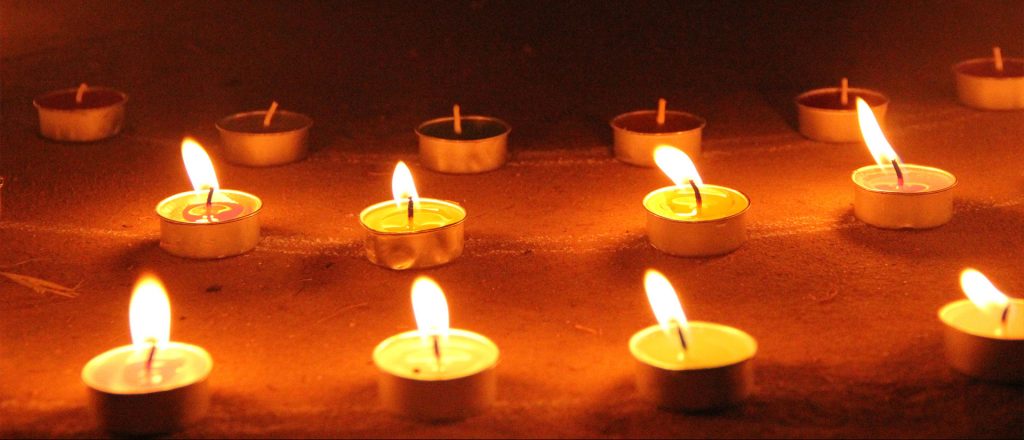As we mark Human Rights Day today, it’s important to reflect on this – that people died for the human rights and freedoms enshrined in our Constitution – not only 63 years ago at Sharpeville, but for decades before and after.
People are still dying – either while investigating injustice, like Cloete and Thomas Murray, assassinated at the weekend, or because their human rights were not upheld, like Langalam Viki in a pit toilet two weeks ago, or the victims of gender-based violence and femicide (GBVF).
Culture of impunity and fear
The killing of prominent curators and liquidators, Cloete and Thomas Murray, demonstrates the disturbing increase in extrajudicial killings and high levels of crime in South Africa, and the government’s failure to create a safe environment for all.
Babita Deokaran, shot dead outside her home in 2021, was the chief director of financial accounting at the Gauteng Department of Health. Prior to her death, she had exposed corruption in the procurement of Covid-19 personal protective equipment.
The chairperson of the Amadiba Crisis Committee, Sikhosiphi “Bazooka” Rhadebe, was shot dead in 2016. He was fighting for the land, environmental and human rights of his community in the Eastern Cape. Amnesty International, alongside partners, has called on the South African government to investigate Rhadebe’s murder numerous times. To date, no one has been brought to justice for his death.
In 2020, environmental activist and human rights defender Fikile Ntshangase was silenced with six bullets. As vice-chairperson of a subcommittee of the Mfolozi Community Environmental Justice Organisation, a community-based organisation advocating for environmental justice in KwaZulu-Natal, she was a vocal opponent of the open coal mine and its expansion of mining operations in the area. Amnesty International South Africa is currently campaigning for justice for Fikile.
Over the years, at least 24 members and activists of Abahlali baseMjondolo, the social movement representing the interests of shack-dwellers and the poor in South Africa, have been killed.
The list of names is too long. The culture of impunity in South Africa is being weaponised to create a state of fear among those who are fighting or speaking out against corruption and injustice. The criminal justice system must start acting as a deterrence.
The government is obliged, through the Protected Disclosures Act and the Witness Protection Act, to provide human rights defenders (HRDs) and whistle-blowers with protection, and it must transparently and without delay outline how it plans to strengthen protection for whistle-blowers and HRDs, as promised by President Ramaphosa in this year’s State of the Nation Address.
Everyone must be assured that exposing corruption and wrongdoing will not cost them their lives.
Pit toilets at schools
Two weeks ago, we were met with the horrifying and tragic news of the death of four-year-old Langalam Viki in a pit toilet at her school in the Eastern Cape.
Her death came a week after the Department of Basic Education missed yet another deadline to eradicate all pit toilets from schools in South Africa. She should have had access to safe and adequate sanitation at school.
If the government had kept to its own deadlines, outlined in the Minimum Norms and Standards for Public School Infrastructure as they currently stand, Langalam’s death could have been prevented.
By continuing to evade accountability on the issue of pit toilets at schools, the government is showing a disregard for the basic human rights of children. No child’s life should be lost because of the failures and shortfalls of the government.
Gender-based violence and femicide
South Africa is still extremely dangerous for everyone, especially women and girls, as GBVF continues to soar. The most recent quarterly crime statistics showed a 9.8% increase in reported rape cases compared to the same period last year.
At the end of this week, South Africa will appear before the United Nations Human Rights Council, and Amnesty International welcomes the government’s support for recommendations from other countries to urgently address GBVF.
It shouldn’t stop at supporting recommendations; it must swiftly implement the recommendations – in particular, providing adequate financial resources to deliver outcomes of the National Strategic Plan on GBVF.
Women and children are dying when they should be safe – at home, in their communities, everywhere.
Protect the human rights of all
Every single life lost had value and each person made the ultimate sacrifice – death – whether at Sharpeville, the Soweto uprising, by bringing corruption and injustice to light, by dying in a toilet that shouldn’t have been there, or by being killed for being a woman or child.
The government must urgently fulfil its mandate to protect the human rights of all, preventing further deaths and allowing all people in South Africa to live their lives fully, freely and without fear of losing their lives.
This opinion article is by Shenilla Mohamed, Executive Director of Amnesty International South Africa, and first appeared on the Daily Maverick.


